Apple HomePod vs Amazon Echo and Google Home: How Each Stacks Up
The new HomePod looks pretty advanced, but does it it have right combination of features to take on Amazon, Google and newer upstarts?
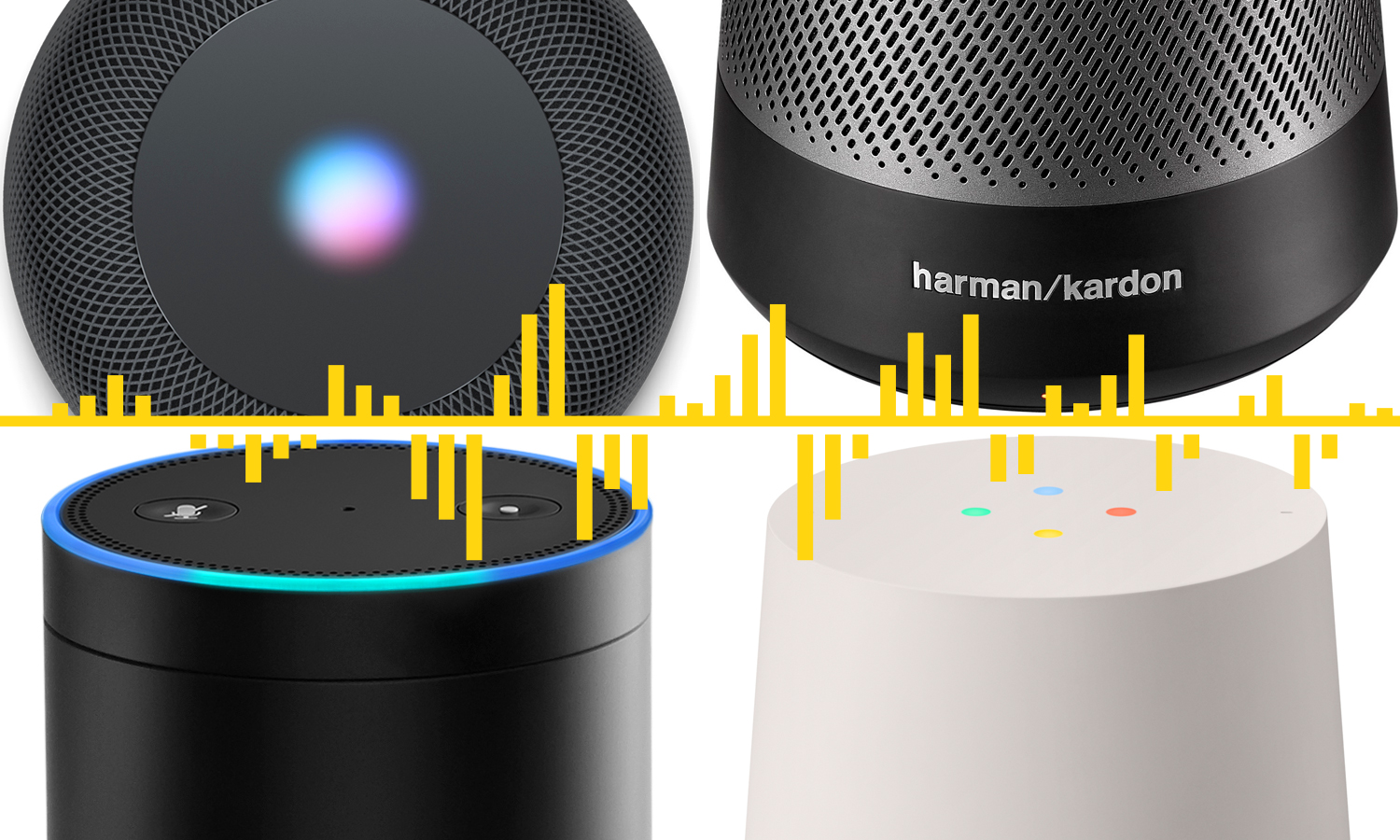
Amazon Echo. Google Home. Microsoft Invoke. Essential Home. Apple HomePod.
Five different speakers, five different platforms vying to be the nerve center for your smart home. All are driven by a voice assistant that will not only dim your lights and lock your doors, but answer questions, make reservations, read email and much, much more.
Right now, Amazon has a huge lead in this space, with more than 70 percent market share, according to a report by Consumer Intelligence Research Partners. Google is next, with about 24 percent. But the living room is still wide open. Apple is positioning the new $349 HomePod, which goes on sale this December, as a music-first device with Siri smarts, and Microsoft is throwing its hat into the ring with a Cortana-powered speaker.
So which one belongs in your home?
Apple HomePod: Music First
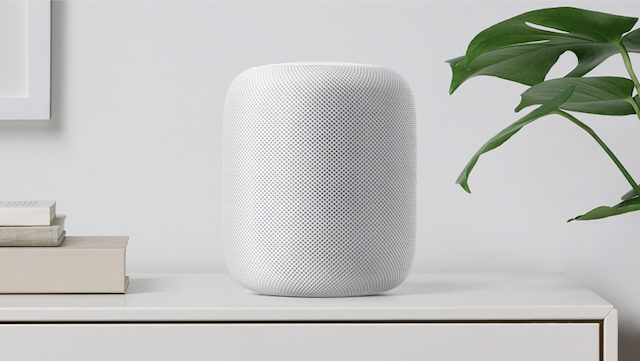
Apple has been a bit ambivalent about its smart-home plans; while you can use both Apple TV and an iPad as a HomeKit hub, it hasn’t marketed it with the same gusto as its other products. That same mentality was evident when it announced the HomePod; company reps spent much more time accentuating the Siri-enabled speaker’s audio capabilities, which, with seven tweeters, a subwoofer and the smarts to adapt its audio to whatever room it’s in, look to be much more formidable than the competition. Combined with iOS 11’s new ability to do whole-home audio, HomePod is set to compete with Sonos’ Play:1 and Play:3 speakers more than anything.
MORE: The Best Products That Work with Apple HomeKit
But maybe that’s a good thing; as the majority of consumers don’t really get what a smart home is, it might be better to start with an awesome-sounding speaker that also happens to control your lights. However, the HomePod’s $349 price makes it much more expensive than every other smart speaker, and its smart-home functionality is much more limited, too. While you can use it to get news, weather and sports scores, for instance, you’re not going to ask it for a recipe, play a game, or order a pizza — all things you can do with Alexa.
I also would have liked to have seen some sort of integration with Apple TV, so you could search for and play shows using your voice, and without picking up the remote.
Amazon Echo and Alexa: A Vast Ecosystem
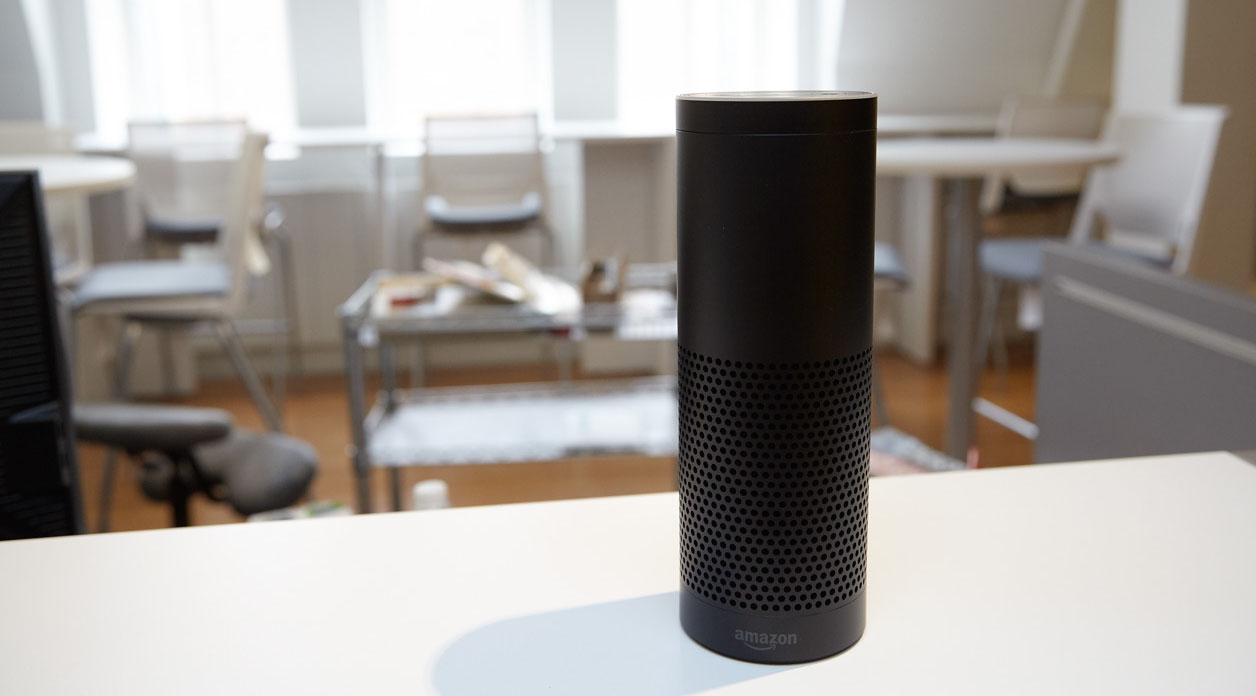
Amazon has the biggest array of hardware and the most aggressive pricing. The company shrewdly priced the Echo Dot at $50, making it a no-brainer Christmas gift this past holiday season. If anything, this is the single biggest reason that Alexa is the most popular in-home assistant.
Since then, Amazon has released three more Alexa-enabled devices. The most interesting product is the Echo Show ($229), a touch-screen device that lets you make video calls to friends and family. You can also see who’s at the front door, check in on your baby, watch video, get news briefings, and more.
There’s also the Fire TV Edition, a 4K TV that starts at $449 (a 50-inch model is $549). It will probably prove to be the second most-popular way for Amazon to insinuate itself into your living room.
Amazon Alexa Buying Guide: Which Is Right For You?
Amazon is smart to let others embed Alexa into devices, such as the Ecobee4 thermostat and a handful of cheap Bluetooth speakers. Even if they’re not big sellers, it doesn’t really cost Amazon anything, and it gets Alexa in more places.
Alexa’s other advantage is in third-party skills, the list of which is continually growing. An unofficial count showed more than 14,000, spanning everything from playing ambient noises for sleeping, amusing you with cat trivia and ordering pizza, to calling a Lyft, getting a recipe and planning trips. Here are 45 of our favorite Alexa skills.
Google Home: Growing Momentum
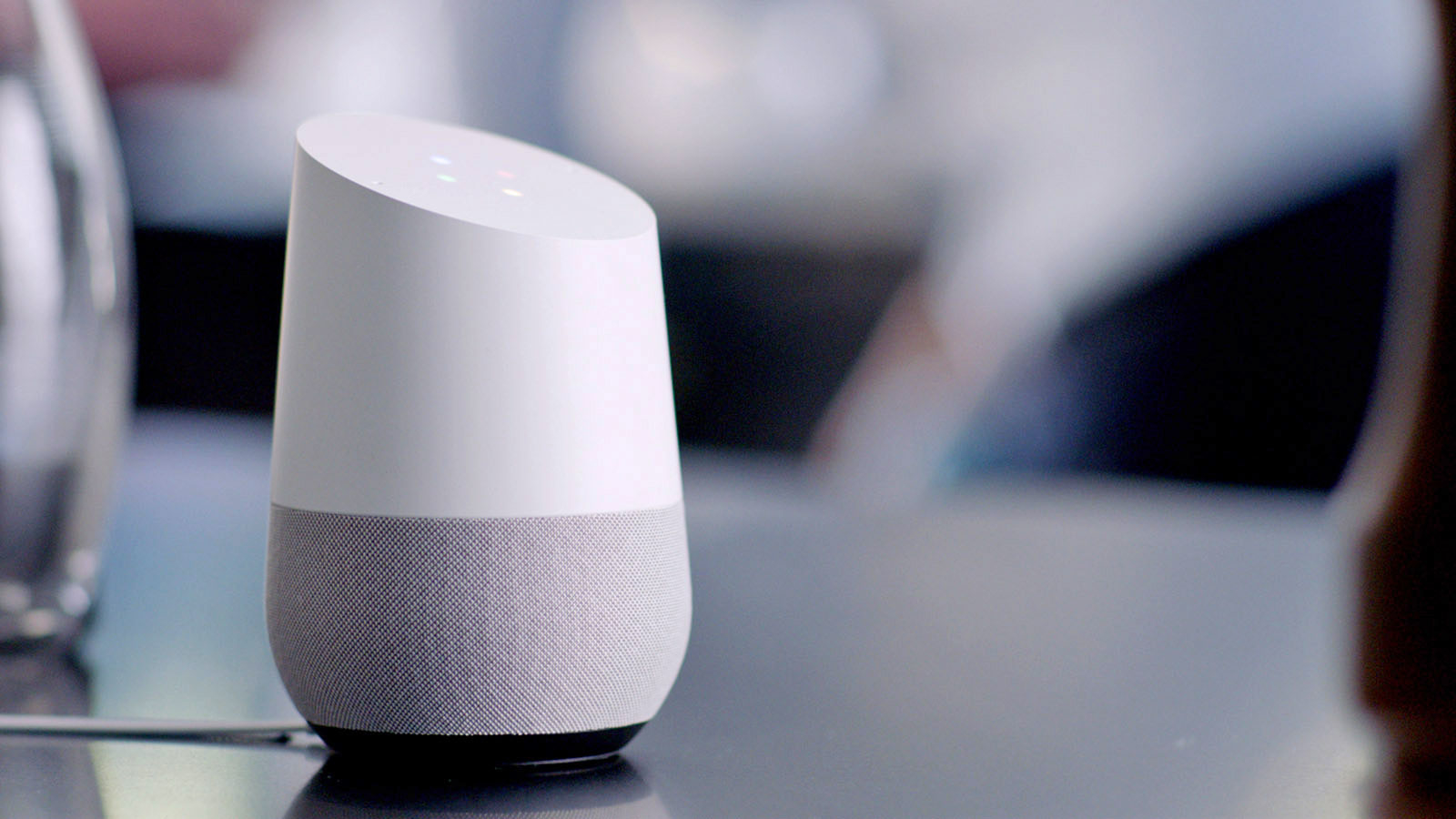
Despite it having just one device, the $179 Google Home is the next most-popular smart-home system, most likely because of Google’s ubiquity. And while it didn’t fare well against the Amazon Echo in our head-to-head battle, I like that Google Assistant is getting much smarter, and that you will soon be able to make hands-free calls.
You can also use Google Home to cast videos to a TV, either by using a Chromecast dongle or via a Chromecast-enabled TV, such as those from Sony and Vizio. And, while not as numerous as Amazon, you can control a greater number of smart-home products using Google Home than you can with HomeKit.
MORE: Google Home vs. Amazon Alexa—Smart Speaker Face-off
Microsoft Invoke: The Underdog
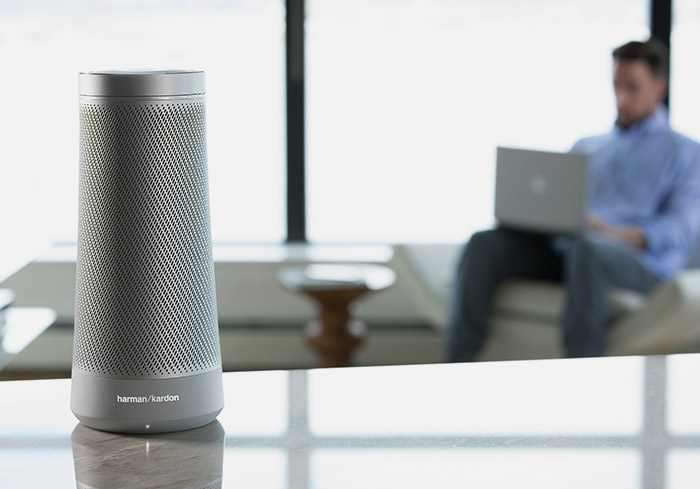
Microsoft Invoke is that company’s answer to the Echo, and will feature Cortana as the brains behind everything. The three Harman Kardon speakers built into the Invoke seemed pretty good — until Apple announced that HomePod would have more than twice that.
Similar to other smart platforms, users will be able to ask Cortana via the Invoke to play music, control smart-home devices (no partnerships have been announced yet) and ask general questions.
The Invoke’s big feature will be the ability to use Skype to make calls, which should appeal to those who work from home. But this seems less compelling now that Google Home has a similar feature, which works with any phone number.
Microsoft will have to find an angle that hasn’t been tapped by Amazon (skills), Google (search), or Apple (music). And that could be very tough. Microsoft’s one advantage is consumers’ familiarity with Cortana, which is in every Windows 10 device.
Essential Home: The Peacemaker
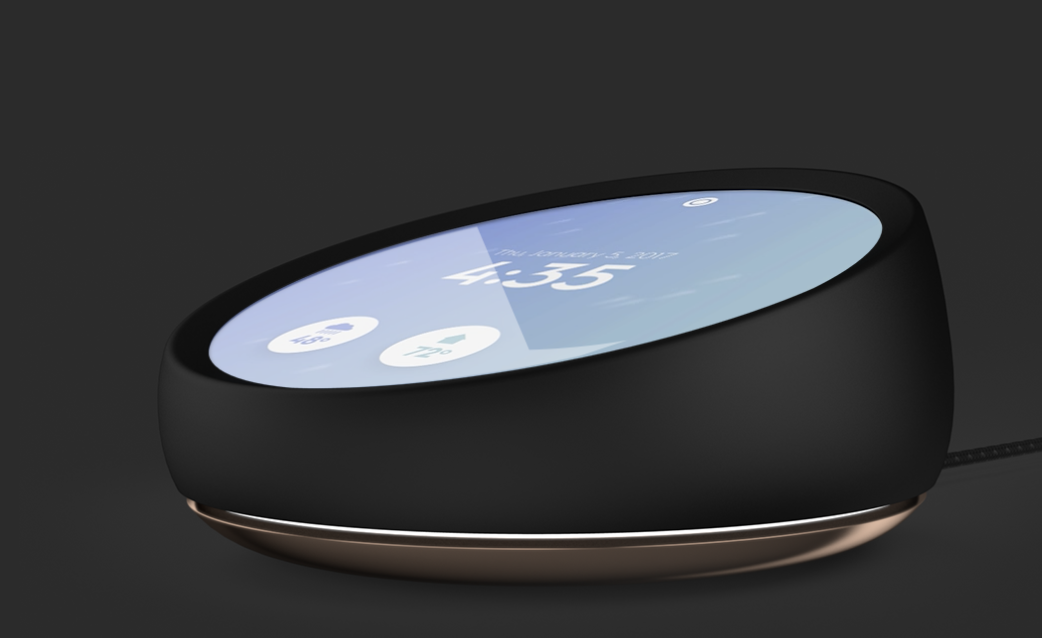
The Essential Home hub is assistant-agnostic. Its creator Andy Rubin (who also helped develop Android), says that Essential Home will also be an open platform, able to interact with every other smart-home assistant. That means you’ll be able to use Siri, Alexa, Google Assistant, even Cortana — on the Essential Home Hub. It’ll act as a smart-home hub for smart-home hubs.
The one caveat is that all those competing companies have to want to work with Essential Home. I can see Alexa integrating, but as for the rest, good luck with that. And even if all assistants were to play nice, I don’t think it’ll be enough to make Essential, well, essential.
The price and release date for the Invoke and Essential Home hub have yet to be announced, so it’s hard to predict its success.
Outlook
Amazon and Google have the best shot at making their speakers the star of your home. Amazon has a huge lead in terms of skills, and it has the most accessible pricing. Google Home has the advantage of being integrated with all of Google’s other products, most notably its search engine. Apple’s HomePod will likely have a small, but devoted following, especially from those who already own an iPad or an iPhone. But they’ll probably use the HomePod for music more than anything else.
Sign up to get the BEST of Tom's Guide direct to your inbox.
Get instant access to breaking news, the hottest reviews, great deals and helpful tips.

Michael A. Prospero is the U.S. Editor-in-Chief for Tom’s Guide. He oversees all evergreen content and oversees the Homes, Smart Home, and Fitness/Wearables categories for the site. In his spare time, he also tests out the latest drones, electric scooters, and smart home gadgets, such as video doorbells. Before his tenure at Tom's Guide, he was the Reviews Editor for Laptop Magazine, a reporter at Fast Company, the Times of Trenton, and, many eons back, an intern at George magazine. He received his undergraduate degree from Boston College, where he worked on the campus newspaper The Heights, and then attended the Columbia University school of Journalism. When he’s not testing out the latest running watch, electric scooter, or skiing or training for a marathon, he’s probably using the latest sous vide machine, smoker, or pizza oven, to the delight — or chagrin — of his family.